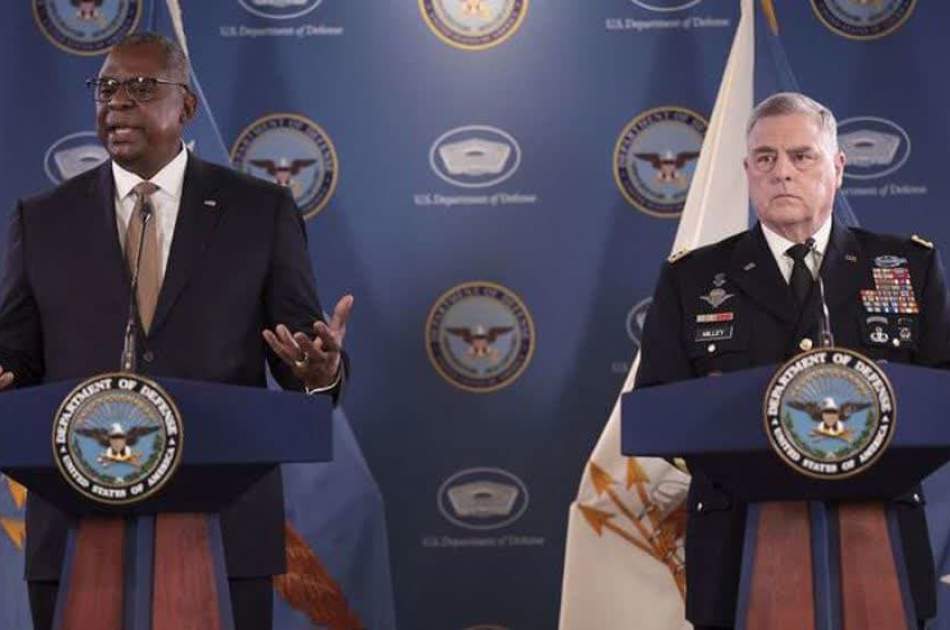The US military's frustration with Chinese officials' repeated refusal to stop talks with Washington over recent sanctions.
Publish dateMonday 29 May 2023 - 10:22
Story Code : 270851
Afghan Voice Agency (AVA) - Monitoring: US Assistant Secretary of Defense for Indo-Pacific Security Affairs Ely Ratner complained on Thursday the Pentagon’s attempts to reach out to China’s military in recent months have been either rejected or ignored.
Ratner made the remarks during an event hosted by Washington-based think tank, the Center for Strategic and International Studies, noting that Beijing is not responding to America’s requests for contact between the nations’ military officials.He then claimed that the US Defense Department is keen to maintain open lines of communication with China in the military domain “to prevent misperception and miscalculation and to prevent crises from spinning out of control.”The development came amid reports that Beijing notified Washington earlier this month that “there is little chance” of Chinese Defense Minister Li Shangfu meeting with his American counterpart Lloyd Austin in Singapore due to sanctions placed on the Chinese defense chief over his alleged involvement in the purchase of Russian advanced weapons.
Ratner, however, claimed that such restrictions should in no way prevent Li from holding talks with his Austin, saying, “The ball is in their court at this point.This is while Beijing further declared last week that it sees no reason to keep talking with Washington as long as the US pursues a wholly disingenuous policy and continues to raise pressure on China through sanctions.
"Where is the sincerity and sense of dialogue, when the US side talks about the need to maintain contacts only to use them as a means to put pressure on China and hamstring our country," Chinese Foreign Ministry spokesperson Mao Ning said in a press briefing last Monday.
The Chinese official further demanded that Washington "immediately lift sanctions" against Beijing.
"It is necessary to create a favorable atmosphere and favorable conditions for dialogue and contact," Mao then explained.US-China ties have grown severely strained since last August, when then-US House Speaker Nancy Pelosi visited Chinese Taipei, which China sees as a provocative move, breaching the internationally accepted “One China” principle and inciting the secessionists on an inseparable part of its territory.
Ratner made the remarks during an event hosted by Washington-based think tank, the Center for Strategic and International Studies, noting that Beijing is not responding to America’s requests for contact between the nations’ military officials.He then claimed that the US Defense Department is keen to maintain open lines of communication with China in the military domain “to prevent misperception and miscalculation and to prevent crises from spinning out of control.”The development came amid reports that Beijing notified Washington earlier this month that “there is little chance” of Chinese Defense Minister Li Shangfu meeting with his American counterpart Lloyd Austin in Singapore due to sanctions placed on the Chinese defense chief over his alleged involvement in the purchase of Russian advanced weapons.
Ratner, however, claimed that such restrictions should in no way prevent Li from holding talks with his Austin, saying, “The ball is in their court at this point.This is while Beijing further declared last week that it sees no reason to keep talking with Washington as long as the US pursues a wholly disingenuous policy and continues to raise pressure on China through sanctions.
"Where is the sincerity and sense of dialogue, when the US side talks about the need to maintain contacts only to use them as a means to put pressure on China and hamstring our country," Chinese Foreign Ministry spokesperson Mao Ning said in a press briefing last Monday.
The Chinese official further demanded that Washington "immediately lift sanctions" against Beijing.
"It is necessary to create a favorable atmosphere and favorable conditions for dialogue and contact," Mao then explained.US-China ties have grown severely strained since last August, when then-US House Speaker Nancy Pelosi visited Chinese Taipei, which China sees as a provocative move, breaching the internationally accepted “One China” principle and inciting the secessionists on an inseparable part of its territory.
avapress.net/vdccpxqis2bqm48.-ya2.html
Tags
Top hits







